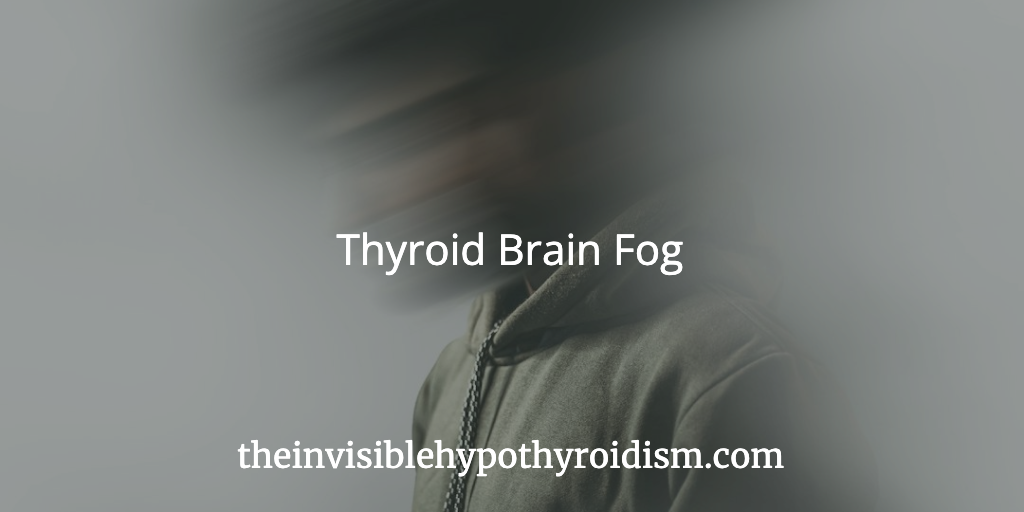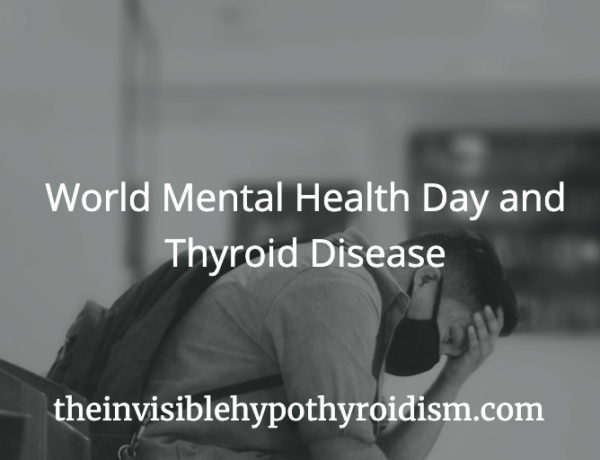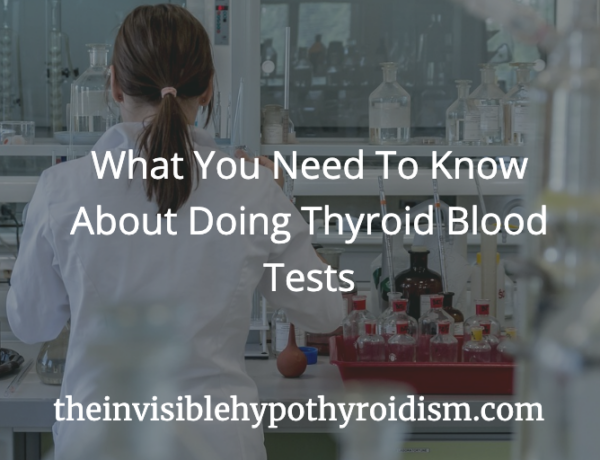Originally published on 29th April 2016 Last updated on 5th August 2024
What is Thyroid Brain Fog?
Brain fog is described as feelings of mental confusion or lack of mental clarity. The phrase comes from the feeling of a fog that reduces your ability to think clearly. It can feel like a mental block and can cause a person to become forgetful, detached and discouraged. They may even become depressed as a knock-on effect. Brain fog is a common symptom of thyroid problems, particularly hypothyroidism and Hashimoto’s.
Read how thyroid patients commonly describe their brain fog here.
You may relate to these top brain fog moments of mine:
Using my house key to try and get through the front door, but it didn’t work. Then I realised I was trying to get in to a neighbour’s house.
Putting lipstick on my eyes.
Whilst in the bath, squeezing conditioner on to my hand then running it all over my face as if it’s face wash.
What Causes Thyroid Brain Fog?
There are quite a few possible causes, so we’ll dive in to them below.
1. Low Thyroid Hormone Levels
Thyroid hormones T3 and T4, used by the brain, have major influences over virtually every brain activity. So if a thyroid patient doesn’t have enough of these thyroid hormones in their body, brain fog can occur to varying degrees.
At times, my brain fog was so severe that it seriously impacted my ability to work. I could read an email ten times and it still wasn’t registering in my mind.
Thyroid hormone, particularly T3, has an important role in the health and optimal functioning of your brain, including: cognitive function, the ability to concentrate, mood, memory and attention span. This explains why we can experience symptoms such as brain fog. T3 interacts with brain receptors and makes the brain more sensitive to chemicals such as serotonin and norepinephrine, which affects your alertness, memory, mood and emotion.
Ensure that both your Free T3 and Free T4 are optimised and not just ‘normal’, ‘fine’ or ‘in range’, to eliminate this cause of brain fog. Optimal is so much more specific and can make the world of difference.
Consider whether your thyroid medication is the right type for you. Many people do better on a T3-containing medication.
2. Inflammation
Inflammation in the body can mean all sorts of things:
- Poor gut health
- Gluten sensitivity
- Adrenal dysfunction
- Hashimoto’s / high thyroid antibodies
and brain fog could be an indication of inflammation in the brain.
Click on each of the above possibilities to explore ways to address these.
Look at quieting the immune response by lowing thyroid antibodies if you have Hashimoto’s, can be helpful since it means the condition is in remission.
3. Mental Health
Experiencing depression can itself cause brain fog. Looking at talking therapies (e.g. CBT) or antidepressants while figuring out other causes can be helpful. However, some people feel ‘foggier’ on antidepressants. I know I did. For many thyroid patients, their mental health improves with optimised Free T3 levels – the active thyroid hormone.
4. Nutrient Levels
Explore your Vitamin B12, D, iron, ferritin levels too to rule out other causes for brain fog and similar thyroid symptoms.
Some thyroid patients also swear by magnesium supplementation for improving brain fog.
Low Iron, Vitamin D and Vitamin B12 are notorious for causing brain fog, and they come hand in hand with thyroid issues all too often.
5. Poor Gut Health
I experienced an impressive reduction in brain fog after overcoming candida (yeast overgrowth) and increased gut permeability with a functional medicine practitioner.
With increased permeability, the intestinal barrier of the gut becomes more permeable, allowing food particles to slip through and circulate round the rest of the body. This can lead to your microglia, who work to defend your central nervous system, going in to high alert – leading to inflammation in the brain.
Addressing any gut issues is crucial for overall good health, and the first step many thyroid patients make to improve this is by removing offending foods from their diet, such as gluten and dairy, which alone can improve brain fog a lot.
A UK test for Candida can be found here. and a US test here.
6. Blood Sugar Imbalances
Symptoms of blood sugar issues can include headaches, feeling faint and dizzy, feeling hungry again quickly after eating, feeling tired, grouchy, irritable and foggy minded.
One of the simplest things you can do to improve any thyroid symptoms you have is to learn how to keep your blood sugar well-balanced. Since realising that I needed to adjust my diet to allow more protein and fat (and less sugar and carbs) in order to balance my blood sugar better and avoid spikes and dramatic drops, the irritable moods, groggy feeling and brain fog is gone.
Healthy fats play a big role in our mental health, mood and brain function. Good sources of fat include olive oil, sesame oil, avocados, olives, nuts, seeds, peanut butter, flaxseed, salmon, chia seeds, eggs and even seed butter.
I also ensure I consume enough protein with every meal and snack, in order to keep my blood sugar levels balanced; sources of protein can include meats, cheese, eggs, nuts, seeds, yoghurts, beans and legumes.
We should aim to eat every two to three hours to keep blood sugar levels balanced. Going long times without food, such as fasting, can place extra stress on the adrenal glands. Never skip meals.
7. Sex Hormones
If you keep experiencing brain fog in relation to a certain point in your cycle, e.g. right before your period starts, look in to sex hormone imbalances.
8. Poor Sleep and Overexertion
Poor quality sleep, not enough sleep and overexerting yourself – both mentally and physically – can cause or exacerbate brain fog.
Go to bed at the same time every night, try black-out blinds, try white noise and these other tips to encourage good quality sleep.
I use blackout curtains myself, to ensure a decent night’s sleep. It’s hard to function on little sleep or sleep that is interrupted. Keeping your bedroom cool, quiet and dark can help a lot and feeling exhausted from poor sleep can really encourage fogginess of the mind.
***
What Helped To Remove My Brain Fog
Going gluten-free dramatically improved my brain fog, but things like addressing low iron levels and low Vitamin D levels also helped, as well as addressing my gut health, diet and eating to better balance blood sugar.
Each time you experience a flare in brain fog, try and pinpoint which things (such as the triggers listed above) may have contributed to it. Obviously, the main thing to do here is then avoid them in future.
Keep nudging your doctor for more reasons as to what is causing your brain fog if you still have no joy with any of the above tips. It’s often one of the most debilitating symptoms of being hypothyroid.
Do you experience thyroid brain fog?

The book Be Your Own Thyroid Advocate: When You’re Sick and Tired of Being Sick and Tired, which builds on this article in detail and covers the simple things you can do to resolve thyroid symptoms.
You can click on the hyperlinks in the above post to learn more and see references to information given, but more reading and references can also be found at:
https://www.theinvisiblehypothyroidism.com/2016/04/19/other-conditions-hypothyroidism-can-cause/






